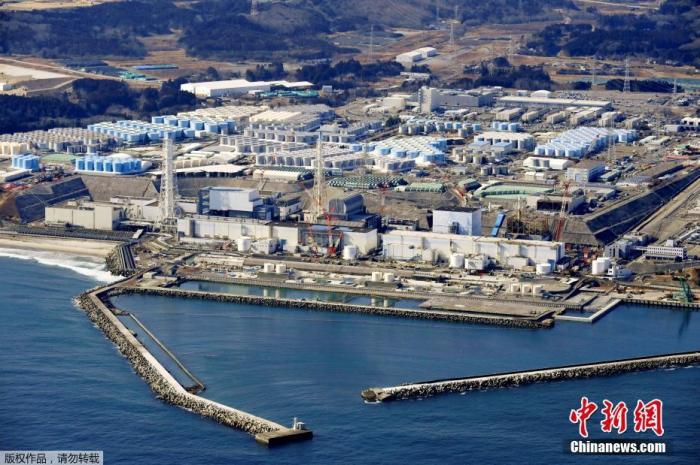The honey produced in Nanie Town, Fukushima Prefecture, Japan was recently detected to have excessive radioactive cesium content.
The “Korea Times” published an article on the 28th expressed concerns about the safety of food produced in Fukushima, Japan, and expressed dissatisfaction with Japan’s complaints that South Korean Olympians did not eat the meals provided by the Tokyo Olympics.
Data map: Fukushima Daiichi Nuclear Power Plant in Japan.
The Japanese food radioactive substance content standard is not more than 100 becquerels per kilogram.
The test results of the official Japanese research institute showed that the radioactive cesium content of honey produced by the Sawagami Management Farming Combination Beekeeping Department in Naniue Town, Fukushima Prefecture reached 130 to 160 becquerels per kilogram.
Japan’s "Mainichi Shimbun" reported that this batch of honey went on the market on June 19. As of July 21, 73 boxes had been sold at the station and 1,336 sets were sold as gift boxes.
The producer said that no problems were found during the pre-sale self-inspection, and this batch of honey will be recycled.
The Korea Times reported on the 28th that the radioactive cesium content of honey produced in Fukushima exceeded the standard, and expressed concern about food safety issues in Fukushima and surrounding areas.
According to the report, Namie Town is only 12.7 kilometers away from the Fukushima Daiichi Nuclear Power Plant where the nuclear accident occurred. The radioactive cesium is believed to be carried by the northwest wind.
In addition to the above-mentioned honey products produced in Namie Town, a fish caught off the coast of Fukushima Prefecture on February 22 this year was detected to have excessive radioactive substances in its body. After about two years, it was again discovered that the radioactive substances in fish caught off the coast of Fukushima had exceeded the standard.
"Korea Times" reported that the Japanese government has repeatedly ensured food safety in Fukushima, and even supplied Fukushima-produced ingredients to the Olympians in the Olympic Village. However, some participating delegations still decided to supply their own ingredients to the contestants.
The Korean Sports Association rented a hotel near the Tokyo Olympic Village and sent 21 nutritionists and chefs to start anew, starting from July 20th to provide Korean Olympic athletes with meals cooked with domestic ingredients.
The U.S. Olympic Committee opened a canteen near the Tokyo practice site of the U.S. Olympic delegation, bringing about 33 tons of food materials from the United States.
However, the US Olympic Committee did not explicitly mention that this approach was due to concerns about food safety in Japan.
Kyodo News reported that the US's move was to provide the contestants with "favorite dishes."
The above-mentioned actions of South Korea attracted criticism from some Japanese media and parliamentarians. Japan’s Olympic Minister Marukawa Suyo said on July 20 that Fukushima food is safe and South Korea does not need to bring its own ingredients to participate in the competition.
In this regard, the "Korea Times" criticized the Japanese side for discriminatory treatment and only criticized South Korea.
(Liu Xiuling) (Xinhua News Agency Special Feature)

